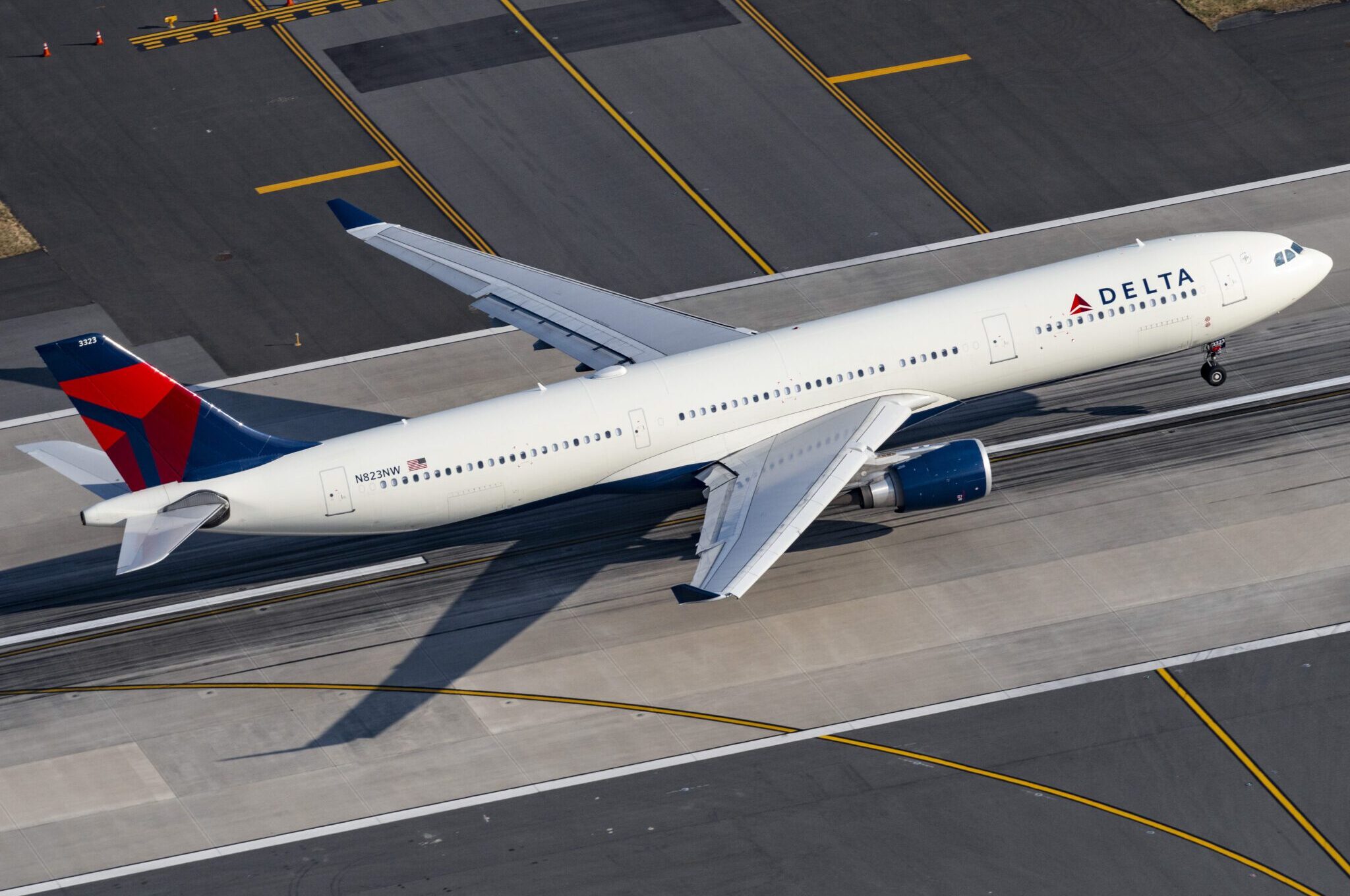German Hotel Booking Giant HRS Tilts Further Toward Corporate Travel

Skift Take
This summer is a pivotal time for HRS, Germany's largest home-grown online travel agency and corporate hotel booking specialist.
In July, the new HRS headquarters, next to Cologne's main train station, is slated to be finished. The new building will enable the 1,500-employee company to increase its Cologne staff.
The fresh hiring will reflect a rebalanced set of priorities.
In the German-speaking world, HRS is best known as a consumer reservations brand — with one out of every three online hotel bookings in Germany made through its portals. But the online travel agency division is only a small part of the privately held company's global operation.
It's also a division that is under pressure, according to industry experts. The consumer business' percentage contribution to company revenue is believed to shrinking each year as the brand faces a fierce marketing battle against Amsterdam-based Booking.com and U.S.-headquartered Expedia.
Reacting to rate parity bans
The backstory: For about a decade, both HRS and Booking.com benefited from contractual rate parity clauses that required hotels to offer the online travel agencies the hotels' best rates that they were also offering on their own websites.
But German government rulings in 2015 banned such clauses.
Since November 2016, HRS has adapted to the new landscape by adding inventory from Expedia Affiliate Network (EAN) to its listings. It sees this as a way to plug some of the gaps in pricing and availability that hotels don't offer straight to HRS.
The company plans to offer its users rates and availability from multiple sources, which signals a slight move away from a "pure" online travel agency model, where HRS sourced all the rooms straight from hotels.
Unlike metasearch brands like Trivago, HRS does not hand-off guests to third-parties to complete the bookings. Travelers instead continue to book on HRS sites as usual.
In the case of EAN-sourced bookings, though, Expedia Inc. gets a cut of each transaction. Plus, if any problems crop up with the transaction, HRS has to work with the third-party to help travelers resolve issues.
The privately held company doesn't disclose figures. So it is unclear to what extent changes in regulations or Booking.com marketing spend is pressuring the company's consumer model more. But the rate parity shifts are to blame for the shift to a new "multi-source model."
Overall, strains in HRS' consumer business appear to be spurring the company to diversify its income streams.
Globally, HRS is best-known as a corporate travel services giant, with more than 40,000 companies using its various services.
Its chief executive Tobias Ragge has been trying to scale up that hotel booking specialist business.
To learn more, Skift spoke with Ragge while he was recently visiting New York City.
A CEO shifts emphasis
Ragge, the company's CEO since 2008, talks about his big picture goals.
He says his company is faring well enough against competitors in its consumer online travel sites. "Our consumer game is a marketing game confined mainly to German-speaking markets. It's a game about providing better content and at being better at 'loyalizing' customers to create repeat business."
But Ragge is much more eager to talk about the company's other business lines. "Our core isn't leisure travel," he emphasizes. "Our core is corporate travel. We will sell leisure products when they want it, but it's not our core focus."
Given its core corporate focus, why doesn't HRS sell off its consumer-facing brands?
Ragge laughs and says, "Well, why not? Yeah. We could. I mean, in business, a sale is always a possibility. But we usually have the perspective that we're already running our leisure and corporate businesses as independent businesses. There is no real need to say we have to sell one to focus on the other because A is not distracting from B."
Ragge adds: "In fact, our online travel agency business generates a majority of its bookings from corporate travelers at small- and medium-sized organizations. So there's a huge spillover between these two business models because the knowledge we get by observing the traveler at small companies we can also use for building our business-to-business services for large corporations. They go hand-in-hand, complementing each other."
Providing guest tech to hotels
In a separate effort, HRS also wants to grow its worldwide business in offering software services to independent- and medium-sized hotels and small chains.
In 2014, Ragge was attending a conference at the European Business School and got to talking with the founder of a Berlin-based startup called Conichi. This hotel smartphone app development firm believes that electronic sensors can help hotels identify guests more quickly to speed up and personalize check-in and checkout.
HRS soon made "a high seven-figure sum" investment. Conichi, founded three years ago, says its mobile app for hotels is in use at about 250 European hotels. To participate, hotels must install beacons (or Bluetooth-signal based receivers) to recognize guests as they arrive or depart from a property.
HRS is promoting the app, which has been downloaded "several hundred thousands of times," Conichi says. Frequent travelers can use the app to create a profile with their preferences, such as preferred pillow size and type of room, and store personal and business credit cards — for use regardless of the hotel chain or reservation channel used to book the reservation.
When a guest arrives at a property, sensors recognize him or her and notify reception's computers. Front desk workers will see some of the forms they need to fill out automatically populated with relevant guest information.
The Conichi app also enables guests to avoid visiting the front desk for check-out, allowing a guest to use the app instead to note any items consumed in the minibar or other expenses incurred and to request an receipt by email.
Corporate focus
In the past couple of years, HRS has ramped up its growth in North America. In 2015, HRS opened its first U.S. office. Last year, it tripled to 3,000 the number of corporations on whose behalf it is managing contracting processes. It says it helped corporations book 12 million room nights.
This May, it announced a deal with Altour to be one of its back-end providers of hotel inventory for its corporate clients.
The HRS offer is to enable companies to book rooms at more than 350,000 hotels — many of which don’t participate in traditional booking channels — at their own negotiated rates and HRS’ exclusive corporate discounted rates.
Trying to stand out
Ragge thinks HRS can differentiate itself by having the broadest inventory of independent hotel properties — an area that more chain-minded competitors have under-emphasized but that accounts for three-quarters of the global hotel supply. HRS says it has 210,000 independent properties available for booking, up from 180,000 a year ago.
More broadly, HRS faces a challenge in that content and booking technology has been increasingly commoditized in the travel management space — with everyone from small startups to billion-dollar corporations tackling parts of the problem.
There are rumors that HRS is trying to gain share through aggressive pricing. Is HRS going to travel management companies and offering to source their hotels for them for free?
Ragge says there are many misconceptions in the market. HRS works with travel management companies (TMCs) in different ways.
Some get access to its hotel content and exclusive rates for free, he says. "For some of the TMCs, we have strategic partnerships where the TMC says, basically, 'Why don't you become our hotel partner and take of this, because it's way too complex for us or we don't want to do it?'"
He explains: "In these cases, if a TMC says, 'Well, I'm willing to outsource my entire process to you for a particular hotel that a client uses regularly,' then we can also do the sourcing for them for free -- but only in these cases. If that's not the case, we don't do this, and then we have just content agreements where they consume our content."
Speaking broadly, Ragge says HRS stands out by offering "an end-to-end process, meaning, we will do the hotel searching, we'll do the hotel negotiation, we'll sure the rates are low automatically without the client having to act, and we'll make that content bookable in all kinds of channels to appeal to how different types of travelers like to book, and, ultimately, we'll generate the highest savings at the lowest possible costs for clients."
Ragge says there is a clear market opportunity for HRS when it comes to global corporate travel.
"We work to make sure that no matter what process you need, be it sourcing, be it the payment process, etc., we can drive down the costs by automating your processes and by applying various industry-wide best practices to increase your employee's participation in your company's travel program."
What is the hardest challenge that HRS faces in the coming years? Ragge says it's tapping the Chinese market. "China is already our second biggest market," he says, but notes the company has to do better.
Online bookings in Chinese business travel are becoming more important every year as travelers increasingly want to reserve their rooms via the booking tool of their company, and there's a gap in the market that HRS can fill, he believes.
Worldwide, Ragge says the company's "first and foremost" aspiration is to achieve its ambition of becoming "the global leading business service provider when it comes to booking hotels for corporate travel."
It remains to be seen if this summer's ribbon-cutting for its new headquarters will mark the start of a global growth spurt driven by corporate gains or the high water mark of a company that may be seeing the tide go out for its consumer business.





